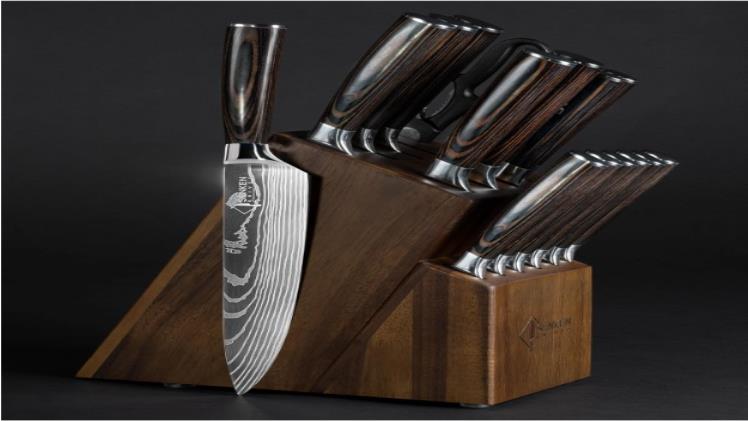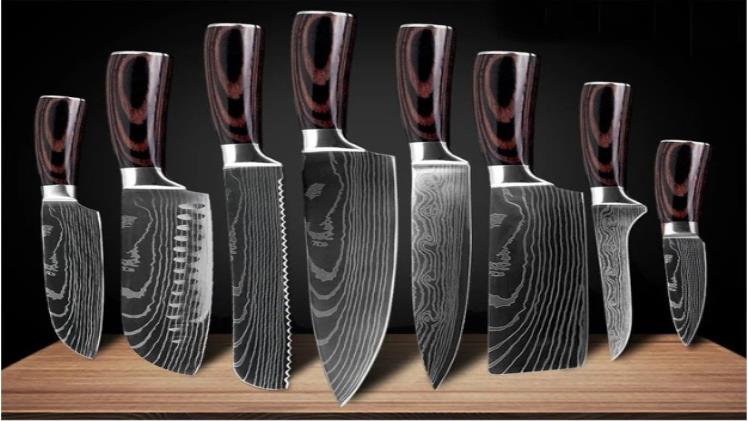Your Carbon Steel Knife: Oiling in the UK
A carbon steel knife is more than just a cutting tool; it’s a piece of living history, an extension of the chef’s hand forged with techniques that have been perfected over centuries. For those who appreciate true craftsmanship, owning one of these blades, like the renowned Sakuto knives, is a rewarding experience. However, this level of quality comes with a responsibility of care. A common question we hear from enthusiasts, particularly in the UK, is: “Do I really need to oil my carbon steel knife every time I use it?”
The answer isn’t a simple yes or no. It depends on several factors, including usage, storage, and even the famously damp UK climate. This guide will walk you through the art of maintaining your carbon steel chef knife, ensuring it remains a trusted companion in your kitchen for years to come.
Understanding Carbon Steel
Before we discuss maintenance, it’s essential to understand the material itself. Carbon steel is an alloy of iron and carbon, often containing up to 2.1% carbon by weight. Unlike stainless steel, it has very little or no chromium, which is the element that provides rust resistance.
So, why choose a material that is prone to rust? The answer lies in performance. Carbon steel is revered for its ability to achieve and hold an incredibly sharp edge. The fine grain structure allows for a more acute angle during sharpening, resulting in a blade that glides through ingredients with precision. This is why many professional chefs and culinary purists prefer a high-quality carbon steel kitchen knife over its stainless counterpart. The trade-off for this exceptional performance is that the blade requires more diligent care to prevent corrosion and a patina that can affect food’s flavor if not managed properly.
How Often Should You Oil Your Knife?
For daily users, the idea of oiling a knife after every single use can seem daunting. The frequency of oiling truly depends on your usage patterns and cleaning habits.
- For Frequent, Daily Use:If you use your knife multiple times a day and wash and dry it immediately after each use, you may not need to oil it every single time. A thoroughly dried knife is the first and most important line of defense against rust. However, applying a light coat of oil at the end of the day before storing it overnight is a highly recommended practice.
- For Infrequent Use:If you only use your carbon steel knife occasionally, it is crucial to oil it before storing it away. Even a small amount of moisture left on the blade or in the air can lead to rust spots developing over a few days or weeks.
- After Cutting Acidic Foods:Foods high in acid, such as citrus fruits, tomatoes, and onions, can accelerate the oxidation process and strip away any protective patina. After cutting these ingredients, it is vital to wash, dry, and oil your knife immediately to neutralize the acid and protect the steel.
The Impact of the UK Climate
The United Kingdom is known for its high humidity and frequent rainfall. This persistent atmospheric moisture is a significant factor for carbon steel knife owners. Humidity means there is more water vapor in the air, which can condense on the surface of your knife and initiate the rusting process, even if the knife appears dry.
For those living in the UK, especially in coastal areas with salt-laden air, a more vigilant approach to oiling is necessary. While you might not need to oil the blade after slicing a loaf of bread, it is a wise habit to apply oil before any period of storage, whether it’s overnight or for a few days. The oil creates a hydrophobic barrier that repels moisture, providing a crucial layer of protection against the damp UK environment. This is why many of the best UK knives made from carbon steel come with specific care instructions emphasizing protection against ambient humidity.
A Step-by-Step Guide to Oiling Your Knife

Oiling your Japanese kitchen knives is a simple but precise ritual. Performing it correctly ensures the blade is fully protected without leaving a greasy residue.
- Clean the Blade Thoroughly:Wash your knife by hand with warm, soapy water immediately after use. Avoid using abrasive sponges that could scratch the steel. Never put a carbon steel knife in the dishwasher, as the harsh detergents and high heat will damage the blade and handle.
- Dry It Completely:This is the most critical step. Use a soft, absorbent cloth to dry the knife completely. Pay special attention to the area where the blade meets the handle, as moisture can get trapped here. Some enthusiasts even use a hairdryer on a low setting for a few seconds to ensure every trace of moisture is gone.
- Apply the Oil:Place a few drops of food-safe mineral oil or a specialized knife oil onto a clean, soft cloth or paper towel. A little goes a long way.
- Coat the Blade Evenly:Gently wipe the cloth along the entire surface of the blade, from the spine to the edge and from the heel to the tip. Ensure you create a thin, even layer. There’s no need to apply a thick coat; a light sheen is all that’s required.
- Wipe Off the Excess:Take a clean, dry section of the cloth and lightly wipe the blade again to remove any excess oil. The goal is to leave a microscopic protective film, not a slippery coating.
- Store Properly:Store your oiled knife in a dry place, preferably in a knife block, on a magnetic strip, or in a sheath (saya). This prevents the blade from knocking against other utensils, which could chip the edge or remove the protective oil layer.
The Best Oils for Your Kitchen Knives
When choosing an oil for your Japanese knife set, always prioritize food-safe options. You are, after all, using these knives to prepare food.
- Food-Grade Mineral Oil:This is the most widely recommended option. It is non-toxic, flavorless, odorless, and will not go rancid. It’s the same type of oil used for conditioning wooden cutting boards.
- Camellia Oil (Tsubaki Oil):This is the traditional choice for protecting Japanese tools and swords. It is a plant-based oil that is naturally acid-neutral and resistant to rancidity. It has been used for centuries by samurai to maintain their blades.
- Fractionated Coconut Oil:Unlike regular coconut oil, fractionated coconut oil remains liquid at room temperature and has a much longer shelf life. It is food-safe and provides excellent protection.
- Specialized Knife Oils:Several brands, including Yoshihiro and Boker, produce oils specifically formulated for knife maintenance. These often contain a blend of mineral and other protective oils.
Avoid using common cooking oils like olive, vegetable, or canola oil. These organic oils can become rancid over time, leading to a sticky residue and an unpleasant smell and taste on your food.
Your Blade, Your Ritual
Owning a carbon steel knife is an investment in quality and performance. While it doesn’t always require oiling after every single use, adopting a regular oiling routine—especially in the humid UK climate—is the key to preserving its integrity and beauty. This small act of maintenance is a ritual that connects you to the craftsmanship of the blade and ensures your chef knife will serve you faithfully for a lifetime.
Do you have your own tips for maintaining carbon steel knives? Share your experiences and questions in the comments below!







